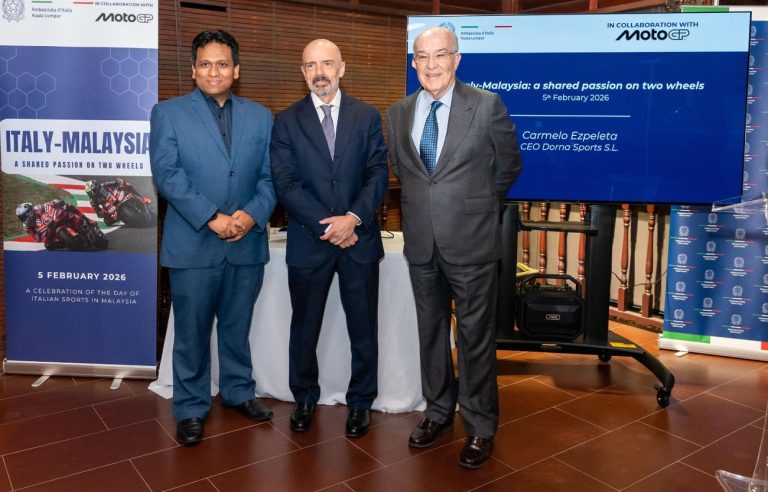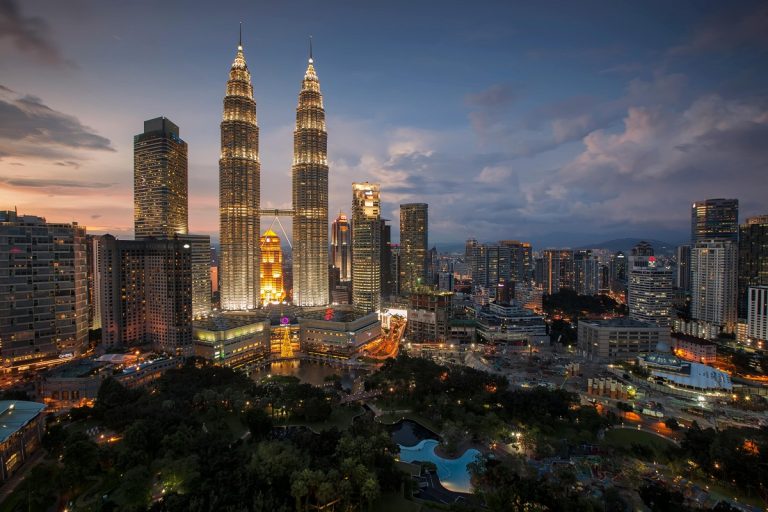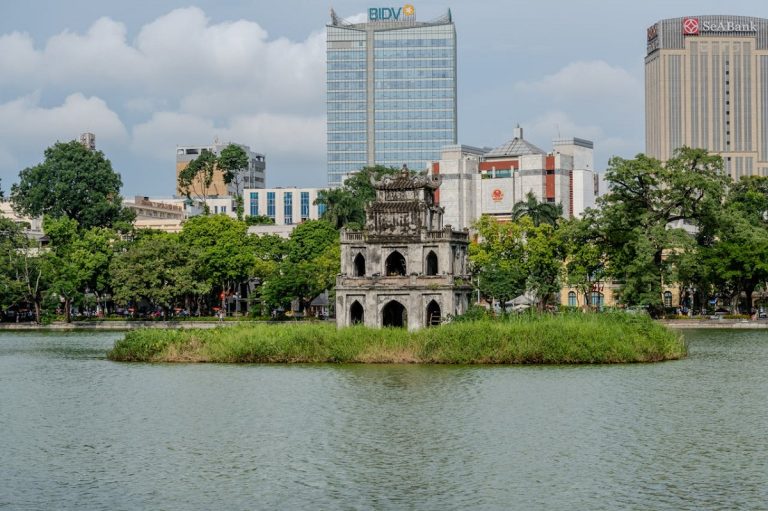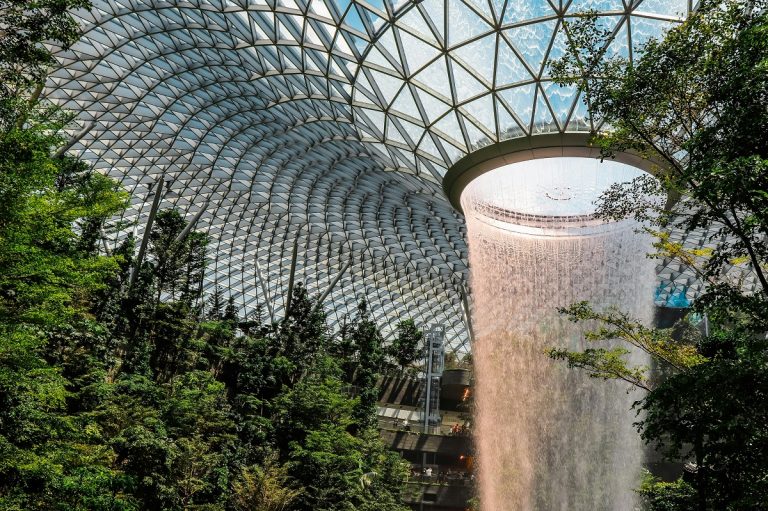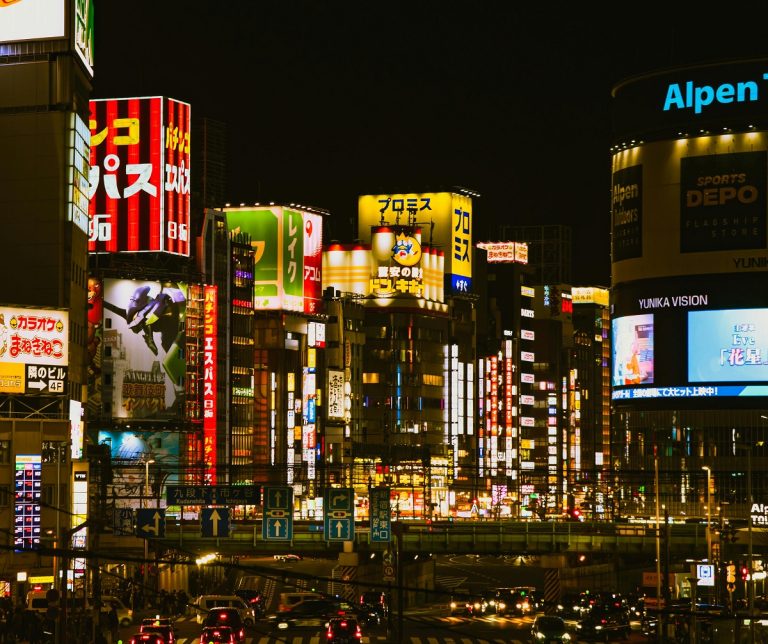Singapore is an intriguing inter-ethnic mosaic. Covering a mere 719 square kilometres – an area that is barely more than half the size of Rome – this city-state is a powerhouse of six million inhabitants with a peculiar cultural fabric made up of a Chinese majority and a large Indian and Malaysian community. Its multiculturalism is sustained not only by special integration policies, but also by the recognition of no less than four official languages – English, Mandarin Chinese, Malay, and Tamil.
A politically stable country, Singapore has been led by the People’s Action Party (PAP) since its independence in 1965, with a vision that has helped build one of the most competitive and innovative economic systems in the world. With a Gross Domestic Product (GDP) per capita among the highest in the world, Singapore embodies economic success based on logistics and technology. The Global Innovation Index 2023 ranked it the 8th most innovative economy in the world. With its strategic location, it has also earned the status of the most advanced economic system in the Association of Southeast Asian Nations (ASEAN).
Singapore also seeks to further develop its role as a financial hub through innovation in fintech and technologies such as the Central Bank Digital Currency (CBDC), the Nexus project for integrating cross-border payment systems in the ASEAN region, and the introduction of new financial instruments for businesses to support the energy transition with the Greenprint project.
With its connections to 120 countries, the port of Singapore is also a hub for world trade. The country is a party to the Comprehensive and Progressive Agreement for Trans-Pacific Partnership (CPTPP) and the Regional Comprehensive Economic Partnership (RCEP), which includes the ASEAN countries, China, Japan, South Korea, Australia, and New Zealand, representing about 30% of the world’s population. Singapore is also the European Union’s (EU) largest trading partner in South-East Asia. More than 10,000 European companies operate there, making the country an ideal springboard to serve an immense pool of consumers and resources throughout the Pacific Rim. This intense cooperation is also underpinned by a Free Trade Agreement (FTA) signed in Brussels in 2018 and fully operational from 2019. Thanks to Italy’s intervention, this agreement recognises geographical indications and has so far protected almost 200 of them at European level, including 39 Italian products of excellence.
Furthermore, the Digital Trade Agreement signed in July 2024 – the first of its kind for the EU – is a major advancement in European digital trade. It is a guarantee of transparency and security, creating conditions for free and protected data flows and a space where technological and digital skills can be exported.
Singapore is a global hub of excellence thanks to its huge public investment in research and development (R&D), which ranks it 11th globally and 1st in per capita investment in this field. With a vibrant ecosystem consisting of 4,000 start-ups, 220 venture capitalists, 227 incubator-accelerators, and countless scientific collaborations, Singapore attracted start-up investments totalling USD 8.5 billion in 2023. Multinationals such as Google, PayPal, Visa, Microsoft, IBM and Philips have chosen to establish innovation hubs in the country, cementing its reputation as a technology hub.
A fertile ground for international partnerships, the city-state also signed a Memorandum of Scientific and Technological Cooperation with Italy in 2016. This cooperation, which has been operational since 2020 and was implemented with the first Executive Programme (EP) in 2023, envisages a total funding of EUR 6 million, equally divided between the two countries. The money will be used to support ten projects in strategic sectors such as food-tech, AI, medicine, photonics, quantum technology, and robotics.
In the academic sphere, the link between the two countries was further strengthened by the collaboration between the botanical gardens of the University of Padua and the National Parks Board of Singapore, both UNESCO World Heritage Sites, to promote exchanges of know-how and shared projects over the next five years.
The financial and technology sectors have also benefited from strategic agreements. In March 2023, AssoFintech and the Singapore Fintech Association signed a Memorandum to foster the internationalisation of research and development activities of Italian and Singaporean fintech and insurtech companies. In the same month, Sgmc-Capital and Simest formalised a partnership to support Italian companies in their expansion into South-East Asia, identifying suitable financial instruments and capitalisation opportunities.
Finally, in 2021, during the G20 Research and Innovation Summit, Italy and Singapore signed a Memorandum on Digital Cooperation, covering strategic areas such as the digital economy, emerging technologies, and government digital services.
In terms of trade, Italy has established itself as the 20th supplier of the City-State in 2023, which remains the first destination of Italian exports to South-East Asia, with a 28% share of the total in the region and an increase of 9.5% compared to 2022. The main items of Italian exports consist of electronics and electromedical equipment, industrial machinery, chemicals, electrical appliances, clothing and leather goods, refined petroleum products, and food and beverages. Imports consist mainly of electronics, pharmaceuticals, metallurgy products, chemicals and industrial machinery.
By virtue of its industrial structure, which is based on small and medium-sized enterprises and on a vast network of free trade agreements with neighbouring countries, just like Italy’s, Singapore holds significant potential as a bridge for investments by the production system in the Asian area.
In terms of attracting investment, the two sovereign wealth funds Temasek and GIC are present in Italy with holdings in listed companies, private equity funds active in small and medium-sized enterprises, and financial interventions in urban regeneration projects. From an industrial point of view, there are solid interests of local operators in Italy – PSA, the company operating in the port of Singapore, manages three port terminals in Italy, two in Genoa and one in Venice. Last March, Singaporean start-up Silicon Box announced an investment of over EUR 3.2 billion in capital and EUR 4.3 billion in operating expenses for the construction of a chiplets (small integrated circuits) plant in Northern Italy, which will generate 1,600 new direct jobs for 15 years.
Finally, on the urban front, Singapore stands out for another visionary initiative – the ASEAN Smart Cities Network. Since 2018, it has pushed for the creation of a network of sustainable and technologically advanced cities that cooperate and share technologies, focusing on sustainability (recycling, use of alternative energy sources) and quality of life (traffic management, waste disposal, safety). Singapore not only leads the project, but acts as the technological and financial capital of the entire region, becoming a reference point for green infrastructure.
SINGAPORE – A GATEWAY TO THE EAST FOR ITALIAN KNOW-HOW
An interview with Italian Ambassador Dante Brandi
With one of the highest per capita incomes in the world, Singapore is one of the world’s most advanced financial hubs. From technological innovation to urban sustainability, through to the agri-food sector, the city-state offers many business opportunities, which can also serve as a gateway for Italian companies to the larger Asian market. This is the opinion of Ambassador Dante Brandi, who represents Italy in Singapore and takes stock of the opportunities to be monitored in this interview.
Ambassador, tell us about the opportunities that you think Italian companies should consider when investing in Singapore.
Singapore is one of the most advanced global financial hubs and a crucial crossroads for international trade. It is strategically located between the Indian and the Pacific Oceans. Its key assets include efficient governance, a transparent legal system and a business environment open to foreign investment. Its physical and digital infrastructure is among the most developed in the world and supports key sectors such as advanced logistics, industrial automation, and technological innovation.
Italian companies can find interesting opportunities in emerging sectors such as green technologies, where Singapore seeks to lead regional energy transition processes. The urban sustainability sector, with its smart-city projects and resilient infrastructure, also offers opportunities for Italian companies specialising in eco-friendly construction, sustainable design, and advanced mobility systems. The city-state has also placed great emphasis on the sustainable food industry, opening its doors to companies operating in foodtech, agricultural biotechnology, and innovative food production systems.
Given the strategies adopted by the local government, are there specific sectors that deserve special attention?
Singapore’s government plans, such as the ‘Green Plan 2030,’ aim to drastically reduce the country’s carbon footprint, with significant investments in renewable energy and the development of a low-emission society. This offers a range of opportunities for Italian companies with expertise in renewable energy, as well as for those developing smart water management and energy efficiency technologies.
The plan also includes the development of technologies for waste treatment and the circular economy, where Italian solutions could have a major impact. Moreover, digitisation remains a top priority – Singapore has invested heavily in AI, cyber security, quantum computing, and industrial automation. Italian companies that can offer innovations in these areas have the opportunity to enter into strategic partnerships.
Can you give us an overview of Italy’s current outreach in Singapore?
Italy’s penetration in Singapore is significant and growing, with about 250 Italian companies already operating in the area. They range from fashion to food & beverage, from shipping to advanced manufacturing, such as pharmaceuticals and semiconductors. Some iconic Italian luxury brands have a consolidated foothold, while sectors such as design and architecture are growing rapidly thanks to highly visible projects, such as those related to urban development and green infrastructure.
The resident community of around 5,000 Italian nationals is highly qualified and includes many professionals working in strategic positions in the fields of finance, scientific research, and technology. Indeed, there is a major network of Italian professors and researchers – more than one hundred – working in prestigious Singaporean universities, connected with each other and with Italy thanks to the work of the Embassy’s Scientific Attaché. Thanks to the bilateral Agreement on Scientific and Technological Cooperation, ten executive projects have been launched involving joint research between Italian and Singaporean universities in many sectors, including food-tech, AI, medicine and health, photonics, quantum technology, robotics, and finally research on hydrogen as an energy source.
Can you tell us the extent of the relations between Singapore and Italy?
Bilateral relations between Singapore and Italy are primarily based on shared values and interests, such as those of a rules-based international order open to trade. Economically, Singapore is an important partner for Italy in the context of the Association of Southeast Asian Nations (ASEAN), acting as its gateway for Italian businesses.
The future of relations could see an expansion thanks to the trade agreements between the European Union (EU) and Singapore already in force, such as the Free Trade Agreement – EUSFTA, the first signed with an ASEAN country. In perspective, the agreements between the EU and Singapore on investment protection and digital trade could boost bilateral relations in this sector, further facilitating partnerships in technological innovation between Europe and Asia. The recent visit of the Amerigo Vespucci training ship and the numerous initiatives organised in Villaggio Italia have outlined new growth prospects, especially in view of the potential long-term interests in strategic sectors such as energy transition, digitisation, and space. It was an important event, exemplifying the strategy that the Embassy and all the players of the Italian economic system on site are developing in Singapore. Above all, there is the objective of promoting Italy beyond its traditional 3Fs (Food, Furniture, Fashion), and thus also as an important counterpart in sectors such as science, technology, advanced industry, art, creativity, and culture.
The Italian economic system, consisting of the Embassy, the ICE Agency, the Italian Chamber of Commerce in Singapore and bodies such as SACE, continues to prioritise the support of Italian companies through seminars, B2B meetings, and assistance for international expansion. Events such as FIND – Design Fair Asia and the start-up acceleration programme in the fintech, insurtech, and blockchain sectors are some examples of how the Italian economic system is working to strengthen Italy’s position in the Singapore and ASEAN markets.


